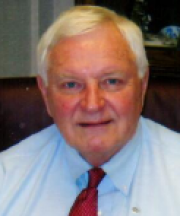Director of Operations
Mentor, Brian Head
 Brian is the Director of Operations for the Nelson Auto Group, which owns four automobile dealerships in two states and associated businesses including auto repair, collision repair, auto finance and collection. Brian started with the company as a computer programmer and designed the information systems used by people at all levels of the organization from the owner and the managers of individual profit centers to the customer service representatives, parts managers, repair technicians and people involved in sales and finance. His integrated IT system is more robust than the typical programs used by similar businesses in part because the information is in real time rather than being provided at the end of an accounting cutoff period. This means that each day every person using the system knows exactly where he or she is in terms of reaching their productivity goals. To be able to design this unique IT business system, Brian first learned about all phases of the business by writing playbooks for different positions and by helping develop ongoing training programs that keep people up to date with the rapidly changing technology in the automobile business and the company’s IT systems.
Brian is the Director of Operations for the Nelson Auto Group, which owns four automobile dealerships in two states and associated businesses including auto repair, collision repair, auto finance and collection. Brian started with the company as a computer programmer and designed the information systems used by people at all levels of the organization from the owner and the managers of individual profit centers to the customer service representatives, parts managers, repair technicians and people involved in sales and finance. His integrated IT system is more robust than the typical programs used by similar businesses in part because the information is in real time rather than being provided at the end of an accounting cutoff period. This means that each day every person using the system knows exactly where he or she is in terms of reaching their productivity goals. To be able to design this unique IT business system, Brian first learned about all phases of the business by writing playbooks for different positions and by helping develop ongoing training programs that keep people up to date with the rapidly changing technology in the automobile business and the company’s IT systems.
To help pay for his education, Brian signed up for the Army National Guard and received GI benefits. After he returned from his military training, he completed a two-year Associates degree and went to work for an accounting firm that was developing accounting software programs. Brian spent two years helping support the software needed to build these accounting packages. The company was then sold to a national accounting software firm. Brian was offered a job with that company but decided he didn’t want to move. Instead, he worked for a few months at a local communications company where he learned about the fiber cables and servers that are the backbone of all IT systems. Brian was then recommended for a job at his present employer by someone who had worked with him at the accounting firm and was familiar with his programing skills. The owner, Bob Nelson, became a mentor to Brian and gave him the encouragement to design and build the company’s information systems and grow into his current position as operations manager for the entire auto group. Brian has developed and refined these systems to the point where they are about to be marketed to other companies through a new business unit they have created to sell and support this software.
Brian’s article will be of interest to anyone who wants to learn how to be successful in programing and IT system design and how success in this field can lead to even greater career advancement. It will also be of interest to anyone wanting to get a better understanding of how rapidly IT systems are changing and how these system impact the way people will work in the future.
Overview
When I graduated from high school, I looked for ways to pay for college. I decided to join the Army National Guard because once I had completed my six-month basic and advanced infantry training I could get my college tuition paid for under the GI bill. After I had received my six-month training and returned to my local unit, I got a two-year Associates degree in programing.
My first job was with an accounting firm that was developing tax and accounting software. We had three groups in the company. One was developing tax programs another accounting programs and the third developing the software to automate the tax and accounting programs. I worked in the software group for two years where I got experience in programing and software design. I also learned there is always more than one solution to a software design problem. So besides learning to write software, I learned how to decide on the most efficient way to build the software programs. The accounting systems we built were so good that after two years the owner was able to sell the company to a national accounting software firm, Intuit. I was offered a job with them at the time of the sale. But I did not want to move and instead found a job at a local communications company that sold internet and telephone services. This job gave me the opportunity to learn about the cable and servers that are the backbone of IT communication systems and how to install them.
I was only at that company for a short time because I got a call from a friend of mine who had worked with me at the accounting company. He had gone to work for the Nelson Auto Group and said that the owner, Bob Nelson, wanted to establish a web presence. Although this is common now, few auto dealers had websites back then. Bob wanted to do something that was ahead of his time. Bob not only became my boss but also my mentor. He encouraged me to be creative when I was building the company’s IT systems and was also someone I could talk to about personal matters. He always made time for me and gave me good counsel. We both share strong religious beliefs and he has helped me grow as a person not just as a businessman.
After I built the website, I then got involved in automating more and more of the company’s operations. When I started I was pretty much on my own and ran cable around the office and the dealership and built my own server room. I also did the programing myself. But eventually I was able to hire the people I wanted to help develop the programs and support the information system.
In order to build an effective IT system for our company, I had to learn about the various jobs in the organization. We wanted every employee to know exactly what their role was. So we wrote a playbook for every part of the business including new and used car sales, service reps and service technicians, finance, accounting, collection and inventory management that we review and update. We established regular training programs to keep the technicians and customer service reps current on the latest auto technology and taught them ways to perform better. For example, this training includes undergoing certification to meet the manufacturers’ standards and additional training to meet the standards we set for our own dealership. We also help our people develop individually through leadership programs.
We feel that everyone wants to be part of a successful, growing team and wants to know what is expected of them. So besides writing the playbooks for many of the positions in the company, I designed the software systems so that everyone can look at their performance everyday and know how well they are doing without having to wait for an evaluation by their supervisor.
Our goal with our customers is to build trust and be transparent. When it comes to service, it is important to understand that people coming in for service and repairs are normally not happy. They not only have to pay for the repair or service, they also have to take time off from work or miss something they would rather be doing. We set up protocols for the customer service reps and the service technicians that will make the customer’s service experience as convenient as possible. For example, we try to make sure their car is done when promised and we have people available who can do routine maintenance like an oil change if someone comes in without an appointment. In order to build trust, it is also important that we get correct estimates of the cost of the work from the technicians to the customer through the service representative and communicate with the customer if something changes while the technician is working on the car. We want to make sure the work is done at the price we quoted and done on time and that there are no surprises when the customer picks up their car.
Most of the IT management systems used by auto dealers when I started were based on accounting modules and the data entry into the accounting system took time. I built a system where the information is entered in real time. One example where this makes a difference is when a car is sold. You don’t really know how profitable that sale is going to be until the car is delivered, which sometimes can be two or three weeks. For example, we might find a scratch or dent that has to be repaired or perhaps the financing changes. Sales managers want to know when these things happen as the car moves to delivery so they can tell if they are meeting their profit goals. Our IT systems are designed to provide this kind of real time information to sales and service managers and the general managers of the dealership so they know where they are each day and do not have to wait until a typical accounting cut off period at the end of a month so they have time to respond. Because we have multiple locations, our data is run over a web platform where it can be easily accessed by anyone in our organization.
Becoming a Computer Programmer and Systems Engineer
To be a good programmer you need to like to solve problems. I think writing a software program is interesting because there are usually several ways to solve the problem and you have to be able to choose the best solution.
It is important that you like math. All software development requires you to have good math skills. Take all the math classes in high school available to you so you will be ready when you go to college.
Successful computer programmers are fluent in a range of programming languages, as each language has a specific set of strengths, limitations and real-world applications. Multiple languages are used in tandem to create many programs. For example, Facebook is coded using PHP, JavaScript, CSS & XHP for the frontend; C, C++, Python & Java for the backend; Erlang for Facebook chat; and Objective-C & Java for Facebook’s iPhone & Android apps respectively. There are a lot of tutorials for computer programing on YouTube where you can get an idea of what is involved in learning to program in the most popular languages.
You should understand that the terms Programmer and Software Engineer are not interchangeable. A programmer knows how to code and has the technical skills needed to build meaningful products. A software engineer follows a systematic process of understanding requirements, working with the company’s management and developing a solution that fulfills their needs. A programmer tends to work alone doing programing assigned to him by an engineer while a software engineer is part of a larger team. I was fortunate that Bob Nelson gave me the opportunity to get involved in the operations of the business and function like an engineer and not just be limited to programing. But I would recommend that you get an engineering degree, which is usually a requirement if you want to become part of management. A four year programming degree is also going to make you more competitive when you enter the workforce.
I joined the Army National Guard and used the GI Bill to pay my college tuition. This benefit is available to Army National Guard members of not just the Army but also the Air Force. The benefits include 100% tuition waiver for all state schools, along with the GI bill that will pay for books and some monthly expenses a student will incur. Here are the minimum requirements that apply to each branch of service:
- A six-year enlistment period.
- You must have completed Initial Active Duty Training.
- You must have the equivalent of a high school diploma.
- You must stay in good standing with your Army National Guard unit.
Summary
I like IT and Operations because I enjoy the challenge of solving new problems and keeping up with the rapidly developing technologies along with the logistics of each system rather it be IT or people. Programming can be a rather isolated job where you generally work on your own writing code. But systems and software design, which normally requires a four year engineering degree, lets you design systems for the whole organization and be part of your organization’s management team. I am an outgoing person and like this role better than just programming. But there are many people who find the challenge of writing code interesting. Look at your own personality and see which position is the best fit for you. Programming and software engineering are both well paying jobs that will allow you take care of your family while doing something that is never repetitive. You are always learning something new as business conditions change and as computer technology continues to advance.
US Bureau of Labor Statistics for Programmers and Computer System and Software Engineers
Programmers
Computer programmers write and test code that allows computer applications and software programs to function properly. They turn the program designs created by software developers and engineers into instructions that a computer can follow.
The median annual wage for computer programmers was $77,550 in May 2014. The median wage is the wage at which half the workers in an occupation earned more than that amount and half earned less. The lowest 10 percent earned less than $44,140, and the highest 10 percent earned more than $127,640
Job prospects will be best for programmers who have a bachelor’s degree or higher and knowledge of a variety of programming languages. Keeping up to date with the newest programming tools will also improve job prospects.
Computer System and Software Engineers
These engineers research, design, develop, and test operating systems-level software, compilers, and network distribution software for medical, industrial, military, communications, aerospace, business, scientific, and general computing applications. Set operational specifications and formulate and analyze software requirements. Apply principles and techniques of computer science, engineering, and mathematical analysis.
The median annual wage for computer systems engineers was $82,710 in May 2014. The median wage is the wage at which half the workers in an occupation earned more than that amount and half earned less. The lowest 10 percent earned less than $50,780, and the highest 10 percent earned more than $129,980.








